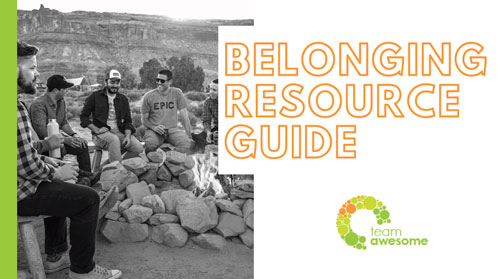I coach many high-performing leaders who are taking on larger teams and responsibilities than they ever have before. And that leap moving from individual contributor or manager of processes to “leader of people” seems to be one of the biggest leaps emerging leaders can encounter.
As leaders begin to have more and more team members to which they can delegate, my clients share several recurring themes as to why they struggle giving more work to other people. I hear concerns such as:
- “Their plates are already so full, I don’t want them to feel overworked.”
- “I don’t have time to train them how and get them up to speed, so I just do it.”
- “I don’t really have anyone to do that role.”
These make compete sense. And, they are getting in the way of higher-level leading.
It’s not that many of these leaders don’t know how to delegate, or don’t want to. There is a critical ingredient missing that is often left unconsidered.
The main ingredient is trust.
Your high-performing team members were promoted into leadership roles because they did their job better than most. And many of them accomplished that with total control over the process and final product. Now imagine having to trust someone other than themselves to get it done. When they become leaders, no one helps them discern how to release control over their old work to trust others to do it well instead. This means the new leader leads at a higher level and is no longer the person directly owning the tasks they once did so well. It’s hard to let go, especially when their leaders aren’t supporting the trust and delegation required at the next level.
Leaders must be focusing on their “highest and best use” to be effective in the organization. That means setting strategy, direction and looking further into the future. If they are stuck micromanaging or actually doing basic tasks because they can’t trust someone else to do it well, I guarantee no one else is setting the strategy. Your organization simply can’t afford to have leaders who are doing when they should be leading.
Delegating is nearly impossible without trust.
If we want to trust other people on our team to do the work well, then there are a few ways we can set ourselves up for success. First, ensure that there are adequate resources and people for someone else to take on the work. Second, ensure the new task master has been properly trained. Third, have regular communication that clearly conveys expectations.
If you are understaffed or you cut corners on training and setting expectations, the difference between what you expect (hope?) and what actually happens will be wide.
When you build mutual trust with your team, you may successfully let them lead their own work.
And finally, if you are telling yourself you are not delegating for one of the reasons I mentioned above, here are some alternative ways to think about those roadblocks to help you find a new path forward.
Their plates are full > Give them growth opportunities
Those tasks that you can’t seem to get to or don’t want to do? There is probably someone on your team who would welcome those tasks to learn and grow. Don’t deny them that opportunity. If their plates truly are too full, see what lower-level work can be moved or even deleted from their lists.
No time to train > Make a plan to invest and divest
In the moment of a deadline, sometimes you have to just get it done. But moving forward, make a plan for how and when you will train others on your team on a task or system so they are ready for the next round. It is a planned investment of your time. Once they are trained, you can divest the workload as part of your transition plan.
I don’t have anyone > Who else could do this?
Maybe you have one person reporting to you, or everyone seems too new to delegate to yet. That’s possible. And yet, YOU doing the work may not be your highest and best use. Do a brainstorm to come up with ten options for who else could do the task, even if they aren’t particularly good options. The act of brainstorming may help you realize a good fit from a different team or even hiring a contractor could be options that hadn’t previously occurred to you.
Ultimately, giving away tasks you used to do well require you to trust and build up others to do the work successfully. Ask yourself what is getting in the way of your trust, and make plans to build trust and develop your team to do bigger work.
About the author:
Katie Rasoul is a keynote speaker, writer, leadership coach and Chief Awesome Officer for Team Awesome, a leadership coaching and culture advising firm. She is a TEDx speaker alumna, author of the best-selling book, Hidden Brilliance: A High-Achieving Introvert’s Guide to Self-Discovery, Leadership and Playing Big, and co-host of The Life and Leadership Podcast.
Learn more about Katie’s signature talks at www.katierasoul.com.



Recent Comments